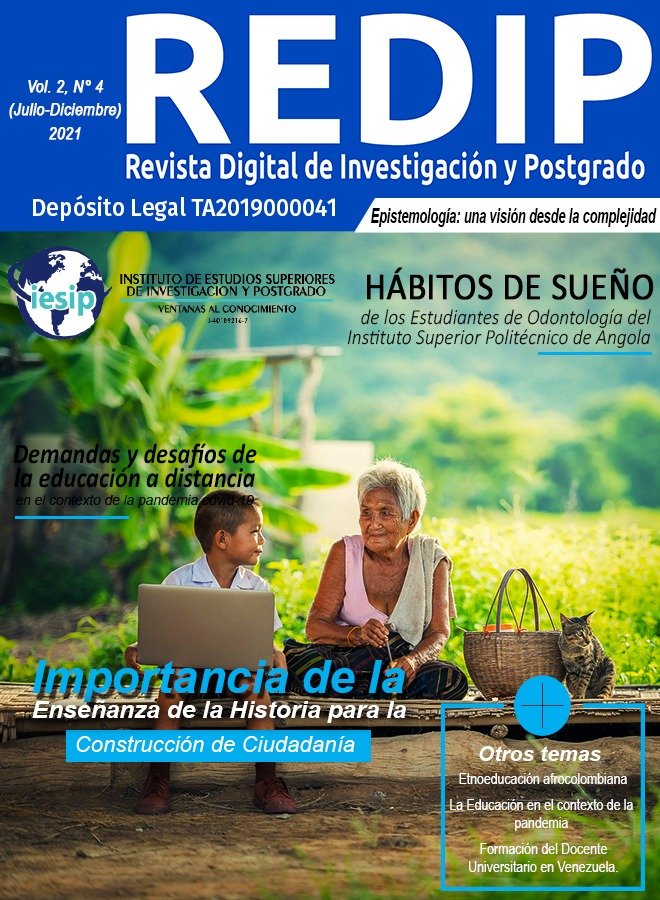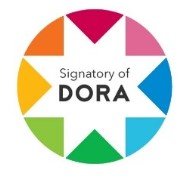Transcomplex Management in Colombian Educational Institutions
Basis for Emerging Leadership
DOI:
https://doi.org/10.59654/zp0bk356Keywords:
University teacher training, training models, new normality.Abstract
The complexities of today's world require organisations to assume leadership with socioenvironmental,
socio-community and socio-affective responsibility, in which the individual is assumed and recognised as the determining factor and primary basis of the organisation, and the environment as the context for socio-economic development and growth. From this perspective, transcomplex management as that which is in the constant search for alternatives, allowing a vision beyond the expected, becoming a complex tool
that responds to problems analysed transdisciplinary reality in such a way as to guide the achievement of its objectives through the efficient management of resources. For the above reasons, a reflection on management, transcomplexity, transcomplex management and emerging leadership models is proposed. From a theoretical perspective, aspects related to transcomplexity, transcomplex management, elements of leadership, emergent leadership, resonant leadership, transformational leadership, distributed leadership and resilient leadership were developed. The school as a transcomplex organisation is called upon to develop, strengthen and maintain the social, political, educational, organisational and community aspects, aspects that must be reconceptualised in order to adapt to the new historical moment in which we find ourselves.
Downloads
References
Bass, B. (2000). Liderazgo y organizaciones que aprenden. ICE Deusto, Actas del III Congreso Internacional. https://www.researchgate.net/profile/Antonio-Bolivar/publication/300170863_El_liderazgo_compartido_segun_Peter_Senge/links/5709da9708aed09e916f9ad3/El-liderazgo-compartido-segun-Peter-Senge.pdf
Batista, J. (2007). El líder emergente. https://users.wix.com/signin?redirectTo=https.
Bennett, N., Harvey, J.A.,Wise, C. & Woods, P. A. (2003). Distributed leadership: A desk study. http://www.ncsl.org.uk/literature.
Bulent, A., & Ceylan, A. (2009). The role of organizational culture on effectiveness. COPÉRNICO, Revista arbitrada de divulgación científica, Año VI, N° 12, 139-140. https://www.researchgate.net/publication/298948437_THE_ROLE_OF_ORGANIZATIONAL_CULTURE_ON_EFFECTIVENESS
Calatayud, S. A. (2010). El director/a que se necesita hoy en las organizaciones escolares. Revista Padres y Maestros, N.° 334, 5-9. https://revistas.comillas.edu/index.php/padresymaestros/article/view/1194
Drucker, P. (2002). La Gerencia en la Sociedad Futura. Editorial Norma.
Gil, R. (2008). Hacia una pedagogía del conocimiento. Ediciones Mc Graw Hill.
Goleman, D. (2005). Inteligencia emocional en la empresa. Vergara.
Goleman, D. (2006). Inteligencia social. Bantam books.
González, R. (2010). Liderazgo resiliente: un nuevo paradigma en el perfil del líder. Capital Humano, 240, 28-30.
González Velasco, Juan Miguel. (2016). La Transcomplejidad una nueva forma de pensarla educación. Revista CON-CIENCIA, 4(2), 47-59. http://www.scielo.org.bo/scielo.php?script=sci_arttext&pid=S2310-02652016000200005&lng=es&tlng=es.
Medina, I. (2012). Percepción sobre inteligencia social entre estudiantes de la facultad de administración de empresas. Revista [IN] Genios. 2, (1),1-14. Universidad de Puerto Rico. https://www.ingeniosupr.com/vol-21/2015/9/11/percepcin-sobre-inteligencia-social-entre-estudiantes-de-la-facultad-de-administracin-de-empresas
Morin, E. (2005). Introducción al pensamiento complejo. Editorial Gedisa. S.A.
Mujica, M. (2007). Estudio contextualizado de la administración en Venezuela. Universidad de Carabobo. https://www.researchgate.net/publication/320474739_Estudio_Contextualizado_de_la_Administracion_en_Venezuela_2da_Edicion_ampliada
Murillo, F. J. (2006). Una dirección escolar para el cambio: del liderazgo transformacional al liderazgo distribuido. REICE. Revista Iberoamericana Sobre Calidad, Eficacia y Cambio En Educación, 4, 11–24.
Rodríguez, M. R. M. (1989). La sonrisa de Saturno. Hacia una teoría transmoderna. Anthropos.
Schavino, N., y Villegas, C. (2010). De la teoría a la praxis en el enfoque integrador transcomplejo. Espacio Iberoamericano del Conocimiento. Congreso Iberoamericano de Educación. https://www.adeepra.org.ar/congresos/Congreso%20IBEROAMERICANO/EIC/R0721_Schavino.pdf
Soto, E. (2001). Comportamiento organizacional. 5ª Edición. Editorial Thompson.
Spillane, J. (2005). Distributed Leadership. The Educational Forum, 69(2), 143- 150.
Downloads
Published
Issue
Section
License
Copyright (c) 2024 Revista Digital de Investigación y Postgrado

This work is licensed under a Creative Commons Attribution-NonCommercial-ShareAlike 4.0 International License.
Esta licencia permite a los reutilizadores distribuir, remezclar, adaptar y desarrollar el material en cualquier medio o formato únicamente con fines no comerciales, y solo siempre que se atribuya al creador. Si remezclas, adaptas o construyes sobre el material, debes licenciar el material modificado bajo términos idénticos. CC BY-NC-SA incluye los siguientes elementos:
![]() POR: se debe dar crédito al creador.
POR: se debe dar crédito al creador.![]() NC: Sólo se permiten usos no comerciales de la obra.
NC: Sólo se permiten usos no comerciales de la obra.![]() SA: Las adaptaciones deben compartirse en los mismos términos.
SA: Las adaptaciones deben compartirse en los mismos términos.











